 Cleaver reviews editor Nathaniel Popkin is the author of five books, including the 2018 novel Everything is Borrowed, and co-editor (with Stephanie Feldman) of the anthology Who Will Speak for America? His essays and works of criticism have appeared in The New York Times, Wall Street Journal, Kenyon Review, LitHub, Tablet Magazine, and Public Books. If you are an author or publicist seeking reviews or a writer hoping to write reviews for Cleaver, query Nathaniel.
Cleaver reviews editor Nathaniel Popkin is the author of five books, including the 2018 novel Everything is Borrowed, and co-editor (with Stephanie Feldman) of the anthology Who Will Speak for America? His essays and works of criticism have appeared in The New York Times, Wall Street Journal, Kenyon Review, LitHub, Tablet Magazine, and Public Books. If you are an author or publicist seeking reviews or a writer hoping to write reviews for Cleaver, query Nathaniel.
A CONVERSATION WITH ELIZABETH MOSIER, AUTHOR OF EXCAVATING MEMORY: ARCHAEOLOGY AND HOME. Interview by Nathaniel Popkin

A Conversation with Elizabeth Mosier Author of EXCAVATING MEMORY: ARCHAEOLOGY AND HOME from New Rivers Press, 96 Pages Interview by Nathaniel Popkin Elizabeth Mosier logged one thousand volunteer hours processing colonial-era artifacts at Philadelphia's Independence National Historical Park Archeology Laboratory to write EXCAVATING MEMORY: ARCHAEOLOGY AND HOME, which uses archaeology as a framework to explore personal material, including her mother’s memory loss, the layering of shared experience in creating family or community narratives, and the role that artifacts play in historical memory. The essay titled "Believers", a 2015 Best American Essays Notable pick, first appeared in Cleaver. Novelist and essayist ...
A CONVERSATION WITH NATHANIEL POPKIN AUTHOR OF EVERYTHING IS BORROWED AND GRANT CLAUSER
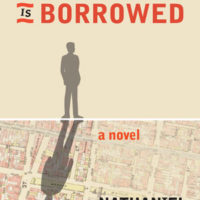
A Conversation with Nathaniel Popkin, author of EVERYTHING IS BORROWED (New Doors Books), Interview by Grant Clauser Nathaniel Popkin, Cleaver Magazine’s fiction reviews editor, published a new novel this year, Everything Is Borrowed (New Door Books). It draws deeply from his love of Philadelphia history and his passion for research, but is also a compelling story about one person’s obsessions and regrets. In addition to the new novel, he’s the editor of a new anthology, Who Will Speak for America, author of the novel Lion and Leopard, and three books of non-fiction, Philadelphia: Finding the Hidden City, Song of the City, ...
THE BODY POLITIC, an essay written by Nathaniel Popkin with photos by Lena Popkin, featured on Life As Activisim

THE BODY POLITIC written by Nathaniel Popkin photos by Lena Popkin Featured on Life As Activism At the center of a novel I just completed, Everything is Borrowed, is the story of an anarchist Jewish immigrant of the 1880s who, seeking to repudiate religion, opens his produce stand across from the Love of Mercy synagogue on Yom Kippur. With no customers on the holy day, the anarchist quietly reads the “pure prayer” of Johan Most. Mid-day, the religious men emerge from shul to get some air. Their eyes flash on the anarchist, who pays them no attention. Their hands become sweaty. He ...
33 REVOLUTIONS, a novel by Canek Sánchez Guevara, reviewed by Nathaniel Popkin

33 REVOLUTIONS by Canek Sánchez Guevara, translated by Howard Curtis Europa Editions, 94 pages reviewed by Nathaniel Popkin Canek Sánchez Guevara’s 33 Revolutions is a prayer of a novel with a single liturgical refrain and a retort (of a kind) to the giddiness emitting from the American-Cuban travelsphere. Not since Reinaldo Arenas has a Cuban literary voice arrived on American shores with such beaten madness, and sense of personal desperation. Sánchez Guevara, who died last year at age 40, was the eldest grandson of revolutionary Ernesto “Che” Guevara. His mother, Hilda Guevara Gaesa, was Che’s oldest child; Hilda’s mother (also ...
Nathaniel Popkin: in Conversation with Translator LEE KLEIN
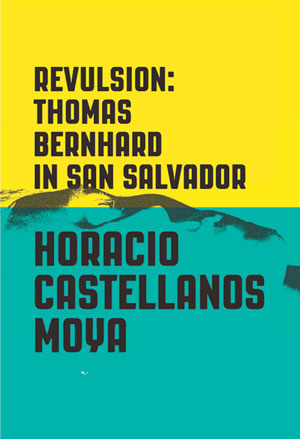
A Novel by Horacio Castellanos Moya, translated by Lee Klein, interviewed by Nathaniel Popkin
Nathaniel Popkin: in Conversation with Translator Lee Klein, REVULSION: THOMAS BERNHARD IN SAN SALVADOR (New Directions) NP: You’ve traveled to El Salvador, the subject of Revulsion. Did you know about the author Castellanos Moya? LK: In 1995 I traveled by land from Austin, Texas (where I lived at the time) to Costa Rica and spent about a week in El Salvador en route south. I visited the beach at La Libertad described in the book and experienced San Salvador but I don’t remember seeing any book other ...
Nathaniel Popkin: in Conversation with Translator Lee Klein, REVULSION: THOMAS BERNHARD IN SAN SALVADOR (New Directions) NP: You’ve traveled to El Salvador, the subject of Revulsion. Did you know about the author Castellanos Moya? LK: In 1995 I traveled by land from Austin, Texas (where I lived at the time) to Costa Rica and spent about a week in El Salvador en route south. I visited the beach at La Libertad described in the book and experienced San Salvador but I don’t remember seeing any book other ...
THE USES OF NATURE: DISTANT LIGHT by Antonio Moresco, HALF-EARTH by Edward O. Wilson, EVERYTHING I FOUND ON THE BEACH by Cynan Jones, and HILL by Jean Giono, reviewed by Nathaniel Popkin

THE USES OF NATURE by Nathaniel Popkin Works discussed: DISTANT LIGHT by Antonio Moresco, translated by Richard Dixon Archipelago Books, 153 pages HALF-EARTH by Edward O. Wilson Liveright, 212 pages EVERYTHING I FOUND ON THE BEACH by Cynan Jones Coffee House Press, 229 pages HILL by Jean Giono, translated by Paul Eprile NYRB, 112 pages Twilight, the sky bruises. The land is pink. Last summer’s bergamot, gone stiff, like coral, perforates the field. Underfoot, the earth is plush. I say to Peter, as we walk in step, “If there was a house here, we could sit on ...
SEEKING CHILDHOOD by Nathaniel Popkin

SEEKING CHILDHOOD by Nathaniel Popkin In early 1951, when the Mexican writer Homero Aridjis was almost eleven, he came home from playing soccer with friends and, following a vague urge, took his brother’s shotgun to the yard. He shot into the air, scattered the birds aloft from the sapodilla tree, and dropped the shotgun to the ground. The gun fired and struck Aridjis in the stomach. He barely survived. The accident, writes Chloe Aridjis, his daughter, “cleaved in two” his life and sealed off his early childhood “like a locked garden.” In the aftermath of the accident, Homero Aridjis ...
WAR, SO MUCH WAR by Mercè Rodoreda TRISTANO DIES by Antonio Tabucchi A GENERAL THEORY OF OBLIVION by José Eduardo Agualusa THE THINGS WE DON’T DO by Andrés Neuman reviewed by Nathaniel Popkin

CONSEQUENCES: Four Books in Translation reviewed by Nathaniel Popkin WAR, SO MUCH WAR by Mercè Rodoreda, translation by Maruxa Relaño and Martha Tennant Open Letter, 185 pages TRISTANO DIES by Antonio Tabucchi, translation by Elizabeth Harris Archipelago, 192 pages THE THINGS WE DON’T DO by Andrés Neuman, translation by Nick Caistor and Lorenza Garcia Open Letter, 190 pages A GENERAL THEORY OF OBLIVION by José Eduardo Agualusa, translated by Daniel Hahn Archipelago, 246 pages Once in a while a writer speaks to me as if we are in a kind of private ...
THE LITTLE TOWN WHERE TIME STOOD STILL by Bohumil Hrabal reviewed by Nathaniel Popkin

THE LITTLE TOWN WHERE TIME STOOD STILL by Bohumil Hrabal translated by James Naughton NYRB Classics, 299 pages reviewed by Nathaniel Popkin Late summer might be the best season to read Bohumil Hrabal, for time reveals itself in the ripe air and everything bleeds with life. Hrabal, the Czech novelist of delirious syncopation, who died in 1997 falling from a fifth floor hospital window while trying to feed the birds, returns to childhood in these two novelas about the manager of a small-town brewery, his older brother, savage wife, and young son. Hrabal’s stepfather was the manager of a brewery; ...
33 DAYS by Léon Werth reviewed by Nathaniel Popkin

33 DAYS by Léon Werth, with an introduction by Antoine de Saint-Exupéry [translated by Austin Denis Johnston] Melville House Publishing, 116 pages reviewed by Nathaniel Popkin There are occasions when a phrase or a paragraph or a book hits the main line and after the dose everything is different. 33 Days arrived in the mail ten days ago, on a Friday. Guests were coming for the weekend. Already, the city was filling with people. The weather was warm, finally; pink and purple and white flowers garlanded the city. Fragrance smothered street corners. Whole neighborhoods were ripe for ...
THE SEA by Blai Bonet reviewed by Nathaniel Popkin

THE SEA by Blai Bonet translated by and Maruxa Relano and Martha Tennent Dalkey Archive Press, 178 pages reviewed by Nathaniel Popkin Manuel Tur, sixteen years old and confined to tubercular sanatorium, stares out his window at the forested plane. He fixes his gaze on the holm oaks and the olive trees. This is Majorca, the Catalan island, 1942. “To the west,” he says, at the opening of Blai Bonet’s 1958 novel The Sea (El Mar), in the new English version published by Dalkey Archive Press, “the sky is hazy, blue, tender, like an open switchblade above the sea.” Bonet’s ...
GUYS LIKE ME by Dominique Fabre reviewed by Nathaniel Popkin

GUYS LIKE ME by Dominique Fabre translated by Howard Curtis New Vessel Press, 144 pages reviewed by Nathaniel Popkin Sometime during Christmas week, 1997, my wife Rona and I and two of our friends were eating dinner in a small restaurant near St. Paul, in Paris. It must have been on rue Charlemagne, but though I can recall the table and the intimate ambiance, I don’t remember the name. We had finished eating, probably we were having our coffee, when the waiter advised us to forget about our experience. This isn’t the real Paris, he said, in the pointed French ...
THE SCAPEGOAT by Sophia Nikolaidou reviewed by Nathaniel Popkin
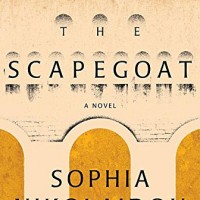
THE SCAPEGOAT by Sophia Nikolaidou translated from the Greek by Karen Emmerich Melville House Publishing, 237 pages reviewed by Nathaniel Popkin As I begin to write this on January 20, 2015, the news from Buenos Aires isn’t good. Albert Nisman, the federal prosecutor assigned to finally uncover the truth about the 1994 bombing of the Argentina Israelite Mutual Association, a Jewish community center, was found dead in his apartment. Nisman was about to reveal a high-level government conspiracy to cover up Iran’s role in the bombing, which killed 85 people. Argentina has long struggled with corruption and politicization of its ...
APPROACHING BORDERS by Nathaniel Popkin

APPROACHING BORDERS by Nathaniel Popkin Two men, one aged 61, the other 65, each born in late January, each a father in grief. The first is the Israeli writer David Grossman, whose son Uri was killed in the brief 2006 Israeli war in Lebanon. The other is the American poet Edward Hirsch, whose son Gabriel died of a drug overdose in 2011. On a bookshelf these men and their books may stand together, G then H, Grossman then Hirsch, David then Edward. They are joined too by the instinct to drill into unfathomable sorrow. In 2008, Grossman produced a ...
JOURNEY BY MOONLIGHT by Antal Szerb reviewed by Nathaniel Popkin

JOURNEY BY MOONLIGHT by Antal Szerb translated by Len Rix New York Review Books, 296 pages reviewed by Nathaniel Popkin I don’t mind observing that as a child I reveled in erotic games, secret afternoons and evenings of play at sex and death. The child’s world stretches infinitely and yet is all encompassing. The ceaseless hours end—usually forcibly, by parents—inevitably leaving a taste of unfulfilled desire. Oh, to be so fully awake, so charged again. Those earliest encounters with desire—yet unnamed, unformed—set on us, mark us, until, at some point the feelings fade. Not desire itself, but the ...
I CALLED HIM NECKTIE by Milena Michiko Flašar reviewed by Nathaniel Popkin

I CALLED HIM NECKTIE by Milena Michiko Flašar translated by Sheila Dickie New Vessel Press reviewed by Nathaniel Popkin A novel can fly across time and space or it can burrow, it can seek out, hide from itself, emerge somewhere else, on some other plane: a surprise. Certainly, other novels set in Tokyo, as is I Called Him Necktie, sprawl across the endless city as words scratch across the page. But this one, by the 34-year-old Milena Michiko Flašar, the Viennese novelist whose mother is Japanese, is a kind of airless tunnel—the closer you are to the exit the further ...
OUR LADY OF THE NILE by Scholastique Mukasonga reviewed by Nathaniel Popkin
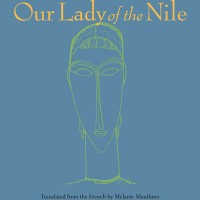
OUR LADY OF THE NILE by Scholastique Mukasonga Archipelago Books, 244 pages translated from the French by Melanie Mauthner reviewed by Nathaniel Popkin This is how Scholastique Mukasonga’s Our Lady of the Nile ends, in 1979: You remember what they used to tell us in catechism: God roams the world, all day long, but every evening He returns home to Rwanda. Well, while God was traveling, Death took his place, and when He returned, She slammed the door in his face. Death established her reign over Rwanda. She has a plan: she’s determined to see it through ...
AGOSTINO by Alberto Moravia and MR. BOARDWALK by Louis Greenstein reviewed by Nathaniel Popkin

AGOSTINO by Alberto Moravia translated by Michael F. Moore NYRB Classics, 128 pages MR. BOARDWALK by Louis Greenstein New Door Books, 316 pages reviewed by Nathaniel Popkin MUSEUMS OF INNOCENCE In September 1980, military officers took over the Turkish government. Soldiers arrested 500,000 people, executed some of them, and installed martial law. Ultimately, the coup ended years of political and economic instability, but most remarkably it led to Turkey’s integration into the global economy, and eventually its status as an emergent power. Gone were days of economic and cultural isolation—a shared national innocence that novelist Orhan Pamuk has ...
INSEL by Mina Loy reviewed by Nathaniel Popkin

INSEL by Mina Loy Melville House, 176 pages reviewed by Nathaniel Popkin You, dear reader, consummate seeker of literature in all forms, of voices in all languages, of song and fragment, of tome and flash, of ancient and modern: writers, books, are slipping through your fingers. It isn’t your fault. There’s too much to read. Every other minute, they say, a new genre is born. You can’t, certainly, keep up. The idea of it is absurd. Worse yet, there are other things to do besides reading. After all, it’s nice out, cherry blossoms are swirling in the wind, ...
THE WORLD’S SMALLEST BIBLE by Dennis Must and DURING THE REIGN OF THE QUEEN OF PERSIA by Joan Chase, reviewed by Nathaniel Popkin

THE WORLD’S SMALLEST BIBLE by Dennis Must Red Hen Press, 232 pages DURING THE REIGN OF THE QUEEN OF PERSIA by Joan Chase NYRB Classics (new edition), 215 pages reviewed by Nathaniel Popkin GROWING UP, MID-CENTURY Childhood is a kind of endlessly swelling pregnancy; the womb stretches and through the amniotic fluid of rooms and voices, odors and faces, the adult world becomes slowly traceable yet still distant, incomprehensible. Once in a while it ruptures and the child is forced to “grow up fast.” Otherwise, it’s the child who must give birth to her adult self. But perhaps I’m ...
THE DISMAL SCIENCE by Peter Mountford reviewed by Nathaniel Popkin
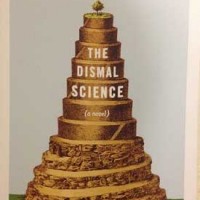
THE DISMAL SCIENCE by Peter Mountford Tin House Press, 275 Pages reviewed by Nathaniel Popkin It seems fitting that Peter Mountford’s novel, The Dismal Science, is being published just as certain global emergent markets—Brazil, Turkey, India, South Africa, and Indonesia, nicknamed by investors the “Fragile Five”—are failing. As the book opens, in 2005, at a World Bank conference in Washington, DC, Vincenzo D’Orsi, a Milan-born, 24 year veteran Bank economist, is leading a panel discussion on the state of global markets. The subtext of his introductory talk, in the woozy gestalt of Bank and IMF bureaucrats: Politics had matured, ...
THE OLD PRIEST by Anthony Wallace reviewed by Nathaniel Popkin

THE OLD PRIEST by Anthony Wallace University of Pittsburgh Press 2013 Drue Heinz Literature Prize, 170 pages reviewed by Nathaniel Popkin "Let’s leave Limit," says Anna to her husband Phil, the narrator of Anthony Wallace’s story "Snow behind the door." Limit is a fictional New Jersey town near Atlantic City and a metaphor for the physical and emotional borders that confine Phil and the other protagonists in this searing, surprising collection. Phil and Anna want to escape—their neighborhood is in decline, the neighbor’s dog won’t stop barking—but at what cost? To what end? What’s keeping them? What’s begging ...
The New York Nobody Knows: Walking 6,000 Miles in the City by William Helmreich and Baghdad: The City in Verse edited by Reuven Snir reviewed by Nathaniel Popkin
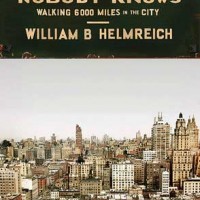
THE NEW YORK NOBODY KNOWS: Walking 6,000 Miles in the City by William Helmreich Princeton University Press, 449 pages BAGHDAD: THE CITY IN VERSE edited by Reuven Snir Harvard University Press, 339 pages reviewed by Nathaniel Popkin Writers, this one included, have long struggled to capture in words the dynamic and multi-layered ways that cities change. Cities themselves are powerful change agents in the wider world, but they are defined and redefined constantly by the evolving tastes and desires of their residents (who themselves are always changing), technology, culture and religion, structural political and economic shifts, and the feedback ...
THE GRAVEYARD by Marek Hłasko reviewed by Nathaniel Popkin

THE GRAVEYARD by Marek Hłasko (1956) in the first English translation by Norbert Guterman (1959) release December 3, 2013 Melville House, 140 pages reviewed by Nathaniel Popkin The moment of truth in this book of deceit is treated in a most unusual way: it isn’t treated at all. Or more precisely: it isn’t even needed. The consequences for Franciszek Kowalski, the protagonist of Marek Hłasko’s unforgettable 1956 novel The Graveyard, indeed for all of humanity, are damning enough. Slender Citizen Kowalski had fought bravely in the underground in 1945; after receiving a nearly fatal chest wound, his faith in international ...
GILGI, ONE OF US By Irmgard Keun reviewed by Nathaniel Popkin

GILGI, ONE OF US By Irmgard Keun (1931) in the first English translation by Geoff Wilkes Melville House, 210 pages Reviewed by Nathaniel Popkin You push through the small, enclosed, almost claustrophobic rooms at the head of “Léger: Modern Art and the Metropolis,” at the Philadelphia Museum of Art, like an exile from a provincial village, and there you are face to face with Léger’s masterwork The City. Now free of the repressive ties of the parochial, you’re not there yet. The City—the city—looms, an inscrutable machine. “At once spacious in its lateral spread and aggressively frontal, it offers ...
SIDEWALK DANCING by Letitia Moffitt reviewed by Nathaniel Popkin
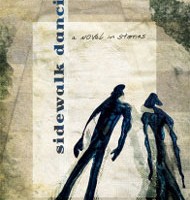
SIDEWALK DANCING by Letitia Moffitt Atticus Books, 158 pages Reviewed by Nathaniel Popkin A sidewalk dance is the step or two that strangers on a sidewalk make together in an effort to get out of each other’s way. Sometimes, says Letitia Moffitt, they naturallly move in tandem, like dancers, until they collide. Sometimes they stay that way, perpetually in each other’s path, never moving past each other. This suspended state of existence—one imagines cells tumbling around a petri dish—infects Moffitt’s novel Sidewalk Dancing (Atticus Books), the story of Grace Chao, a Chinese immigrant to San Francisco, and ...
BLINDING: THE LEFT WING by Mircea Cărtărescu reviewed by Nathaniel Popkin

BLINDING: THE LEFT WING by Mircea Cărtărescu, in the English translation by Sean Cotter, Archipelago Books, 464 pages Reviewed by Nathaniel Popkin It starts in adolescence. The questions come to you while lying in bed (certainly now with a growing awareness of your sexuality), the walls of your room expanding into endless grainy darkness, as if the room itself could encompass the entire world: why am I here, why is there anything at all? The questions may haunt you at age 13 or 15 or 17, but by adulthood they tend to feel banal. Unanswerable, impossible, if ...
WHERE SOMEBODY WAITS by Margaret Kaufman reviewed by Nathaniel Popkin

WHERE SOMEBODY WAITS by Margaret Kaufman PaulDryBooks, 201 pages Reviewed by Nathaniel Popkin Critics never thought much of Ettore Scola’s 1987 film La Famiglia. Vincent Camby, writing in the New York Times, said that it has “the manner of a film that was conceived as an idea…The characters and events were thought up later.” But the idea, to capture time as it drifts through a single family in the space of a single apartment, is so powerfully melancholic that I’ll sit and ache through the film any time. Even despite the soft filter gauze of the mid-1980s. That same ...
Two Cities, Two Outsiders, Two Novels reviewed by Nathaniel Popkin

THE STORY OF A NEW NAME by Elena Ferrante, trans. Ann Goldstein Europa Editions, 471 pages ELI, ELY by Ezekiel Tyrus Hardhead Press, 283 pages Reviewed by Nathaniel Popkin Two Cities, Two Outsiders, Two Novels My thirteen-year-old daughter Lena got a hold of my review copy of Elena Ferrante’s new novel The Story of a New Name and the pencil stuck inside it for jotting notes in the margins. “Your journey starts now! Ready….go!” she wrote at the beginning of chapter 59 (of 125). On page 251, and then every so often to the end of the book, ...
IN THE COURTYARD OF THE KABBALIST by Ruchama King Feuerman reviewed by Nathaniel Popkin

IN THE COURTYARD OF THE KABBALIST by Ruchama King Feuerman NYRBLit (e-book only), 203 pages Reviewed by Nathaniel Popkin As I was crossing the street just outside the Jaffa Gate of the Old City of Jerusalem one evening this summer, I noticed a Palestinian boy, about 15 years old, flying a kite on the corner. It was about seven and the sun had disappeared already. The light was pink. The sky in the distance was a cloudless blue, but it seemed, at dusk, to have the texture of felt. An orthodox Jewish mother, wearing a headscarf and long ...
